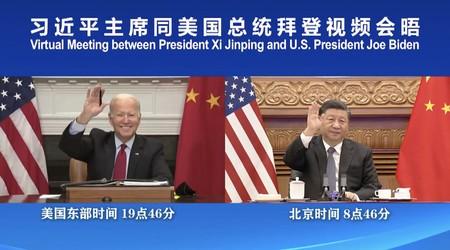[Washington, Beijing Jiji] U.S. Presidential Adviser Sullivan (National Security) and China's top foreign affairs chief Yang Jie , and agreed in principle to hold an online US-China summit by the end of the year. A senior U.S. government official said. Amid heightened tensions between the United States and China over issues such as the situation in Taiwan, the leaders agreed on the need to maintain and strengthen communication between the two leaders in order to avoid escalating the conflict.

To hold talks with China's top diplomat in Switzerland Continuing tensions but maintaining communication-US aide
The US side has sought face-to-face talks, but due to the spread of the new coronavirus, President Xi Jinping has not traveled abroad since his visit to Myanmar in January last year. Both countries decided that it would be difficult to hold a face-to-face meeting on the occasion of the Group of 20 (G20) summit. It seems that he would like to have a full-fledged meeting in an online format rather than the two telephone talks. Since taking office in January, President Biden has signaled a policy of both competition and cooperation with China. In terms of competition, Japan is working to mobilize allies and friendly nations to counter China, including the summit meeting of the quadruple cooperation framework (Quad) among Japan, the United States, Australia, and India, and the establishment of the United States, United Kingdom, and Australia security framework "AUKUS." was pushed to the front. However, Biden said in his address to the United Nations General Assembly in September that he was "not seeking a new Cold War (between the United States and China)." It seeks cooperation on issues of common interest to avoid competition turning into conflict. In September, the U.S. Department of Justice suspended the prosecution of Meng Wanzhou, vice chairman of Huawei Technologies Co., who was detained in Canada, and allowed him to return to China. Ministerial-level talks are scheduled to be resumed soon on the trade side, and it seems that online talks are positioned as an extension of these responses. On the other hand, China has entered a period of concentrating on domestic affairs ahead of next fall's Communist Party Congress, which is expected to see Mr. Xi's third term in office. The 19th Central Committee's 6th Plenary Meeting (6th Plenary Session) will be held next month, and the Beijing Winter Olympics will be held in February next year. With domestic political issues such as electricity shortages and China's Evergrande Group casting a dark shadow underpinning the economy, Japan does not want its diplomatic relationship with the United States to deteriorate further. At the meeting, Yang told Sullivan, "If China and the United States confront each other, the two countries and the world will be greatly damaged." In a video address to the United Nations General Assembly in September, Xi announced for the first time his policy of not getting involved in the construction of new coal-fired power plants outside China, while checking the US-led building of a "encirclement network" against China. It seems that the aim is to find clues to cooperative relationships using the issue of global warming, which Mr. Biden emphasizes, and it is likely to be one of the points of discussion in online meetings.